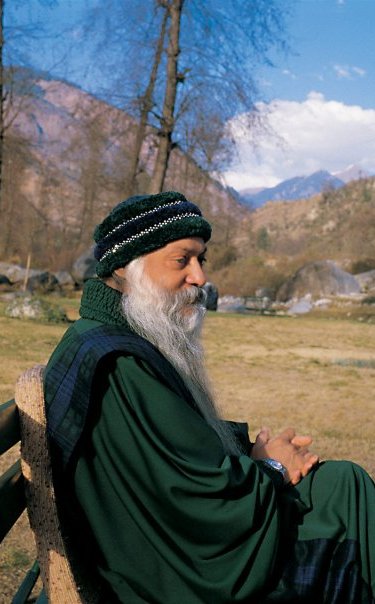|

|
Buddha
Dhammapada Sutra
- WE ARE WHAT WE THINK. ALL THAT WE ARE ARISES
WITH OUR THOUGHTS. WITH OUR THOUGHTS WE MAKE THE WORLD.
Osho - It has been said to
you again and again that the Eastern mystics believe that the world is
illusory. It is true: they not only believe that the world is untrue,
illusory, maya -- they know that it is maya, it is an illusion, a dream.
But when they use the word sansara -- the world -- they don't mean the
objective world that science investigates; no, not at all. They don't
mean the world of the trees and the mountains and the rivers; no, not at
all.
They mean the world that you create, spin and weave
inside your mind, the wheel of the mind that goes on moving and
spinning. Sansara has nothing to do with the outside world. There are
three things to be remembered. One is the outside world, the objective
world. Buddha will never say anything about it because that is not his
concern; he is not an Albert Einstein.
Then there is a second world: the world of the mind,
the world that the psychoanalysts, the psychiatrists, the psychologists
investigate. Buddha will have a few things to say about it, not many,
just a few -- in fact, one: that it is illusory, that it has no truth,
either objective or subjective, that it is in between.
The first world is the objective world, which science investigates. The
second world is the world of the mind, which the psychologist
investigates. And the third world is your subjectivity, your
interiority, your inner self.
Buddha's indication is towards the interiormost core of your being. But
you are too much involved with the mind. Unless he helps you to become
untrapped from the mind, you will never know the third, the real world:
your inner substance. Hence he starts with the statement: WE ARE WHAT WE
THINK. That's what everybody is: his mind. ALL THAT WE ARE ARISES WITH
OUR THOUGHTS.
Just imagine for a single moment that all thoughts
have ceased...then who are you? If all thoughts cease for a single
moment, then who are you? No answer will be coming. You cannot say, "I
am a Catholic," "I am a Protestant," "I am a Hindu," "I am a Mohammedan"
-- you cannot say that. All thoughts have ceased. So the Koran has
disappeared, the Bible, the Gita...all words have ceased! You cannot
even utter your name. All language has disappeared so you cannot say to
which country you belong, to which race. When thoughts cease, who are
you? An utter emptiness, nothingness, no-thingness.
It is because of this that Buddha has used a strange word; nobody has
ever done such a thing before, or since. The mystics have always used
the word 'self' for the interior most core of your being -- Buddha uses
the word 'no-self'. And I perfectly agree with him; he is far more
accurate, closer to truth. To use the word 'self' -- even if you use the
word 'Self' with a capital 'S', does not make much difference. It
continues to give you the sense of the ego, and with a capital 'S' it
may give you an even bigger ego.
Buddha does not use the words atma, 'self', atta. He uses just the
opposite word: 'no-self', anatma, anatta. He says when mind ceases,
there is no self left -- you have become universal, you have overflowed
the boundaries of the ego, you are a pure space, uncontaminated by
anything. You are just a mirror reflecting nothing.
WE ARE WHAT WE THINK. ALL THAT WE ARE ARISES WITH OUR THOUGHTS. WITH OUR
THOUGHTS WE MAKE THE WORLD.
If you really want to know who, in reality, you are, you will have to
learn how to cease as a mind, how to stop thinking. That's what
meditation is all about. Meditation means going out of the mind,
dropping the mind and moving in the space called no-mind. And in no-mind
you will know the ultimate truth, dhamma.
And moving from mind to no-mind is the step, pada. And this is the whole
secret of THE DHAMMAPADA.
^Top
Back to Gautam Buddha |
|
